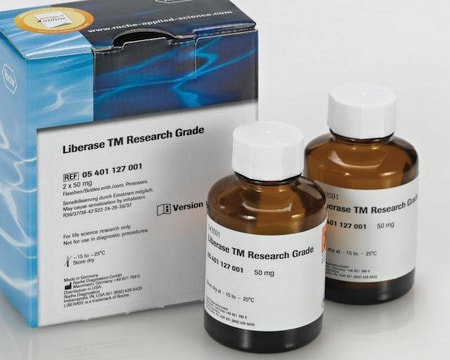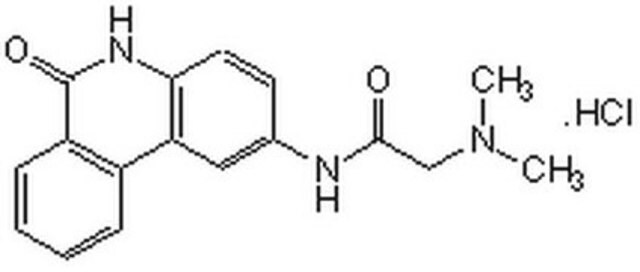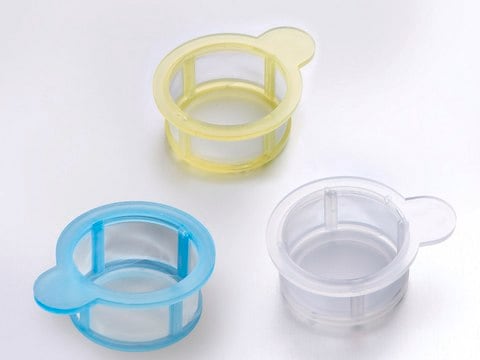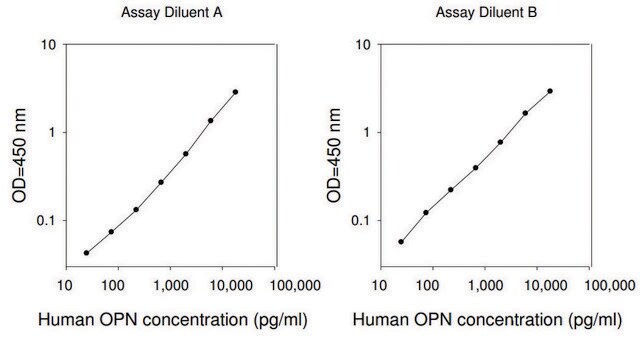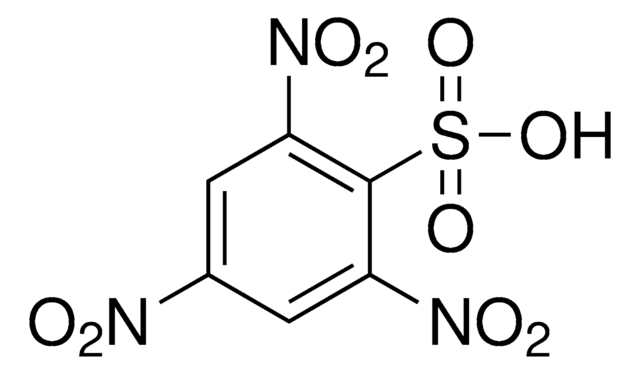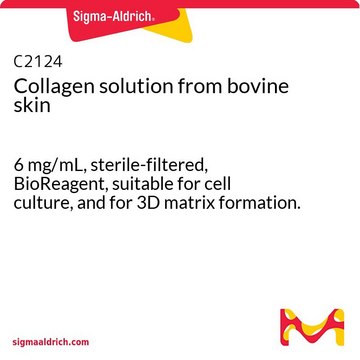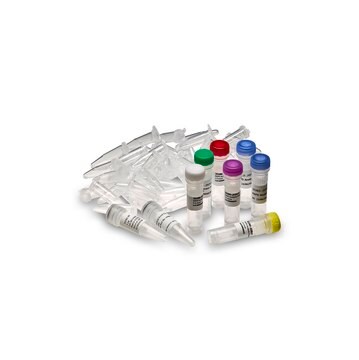DUO84013
Duolink® flowPLA Compensation Beads - Orange
For flow cytometry standard and multiplex analysis
About This Item
Prodotti consigliati
Livello qualitativo
Nome Commerciale
Duolink®
tecniche
flow cytometry: suitable
immunocytochemistry: suitable
immunofluorescence: suitable
multiplexing: suitable
proximity ligation assay: suitable
Fluorescenza
λex 554 nm; λem 579 nm (excitation laser line 532, 561 nm)
Compatibilità
suitable for fluorescence
Condizioni di spedizione
wet ice
Temperatura di conservazione
2-8°C
Applicazioni
It is recommended that Duolink® compensation beads should be used when performing a multiplexed experiment (DUO96001) to save on time and reagent cost, rather than using precious sample. This product can be used to determine flow cytometry instrumentation collection parameters, inform experimental design, and as a control for compensation data for multiplexed FlowPLA experiments.
Visit our Duolink® PLA Resource Center for information on how to run a Duolink® experiment, applications, troubleshooting, and more.
To perform a complete Duolink® PLA in situ experiment you will need two primary antibodies (PLA, IHC, ICC or IF validated) that recognize two target epitopes. Other necessary reagents include a pair of PLA probes from different species (one PLUS and one MINUS), detection reagents, wash buffers, and mounting medium. Note that the primary antibodies must come from the same species as the Duolink® PLA probes. Analysis is carried out using standard flow cytometry equipment. Duolink® Multicolor flow PLA Reagent Pack Kits used with Duolink® PLA Multicolor Probemaker Kits will enable Multiplexing of up to 4 protein events with sensitive detection of proteins, protein-protein interactions, and protein modifications within cell populations by flow cytometry.
Let us do the work for you, learn more about our Custom Service Program to accelerate your Duolink® projects
View full Duolink® product list
Caratteristiche e vantaggi
- Save time and reagent cost by utilizing beads for compensation rather than precious sample and multiplex reagents
- No overexpression or genetic manipulation required
- High specificity (fewer false positives)
- Single molecule sensitivity due to rolling circle amplification
- Relative quantification possible
- No special equipment needed
- Quicker and simpler than FRET
- Increased accuracy compared to co-IP
- Publication-ready results
Componenti
6.0 - 8.0μm polystyrene beads suitable for use in flow cytometry assays. The bead slurry should have a concentration of 1.5-3.0 million beads/mL. Orange beads can be mixed with the negative control compensation (DUO84010), or collected alone.
Note legali
Codice della classe di stoccaggio
12 - Non Combustible Liquids
Classe di pericolosità dell'acqua (WGK)
WGK 1
Scegli una delle versioni più recenti:
Certificati d'analisi (COA)
It looks like we've run into a problem, but you can still download Certificates of Analysis from our Documenti section.
Se ti serve aiuto, non esitare a contattarci Servizio Clienti
Possiedi già questo prodotto?
I documenti relativi ai prodotti acquistati recentemente sono disponibili nell’Archivio dei documenti.
Il team dei nostri ricercatori vanta grande esperienza in tutte le aree della ricerca quali Life Science, scienza dei materiali, sintesi chimica, cromatografia, discipline analitiche, ecc..
Contatta l'Assistenza Tecnica.